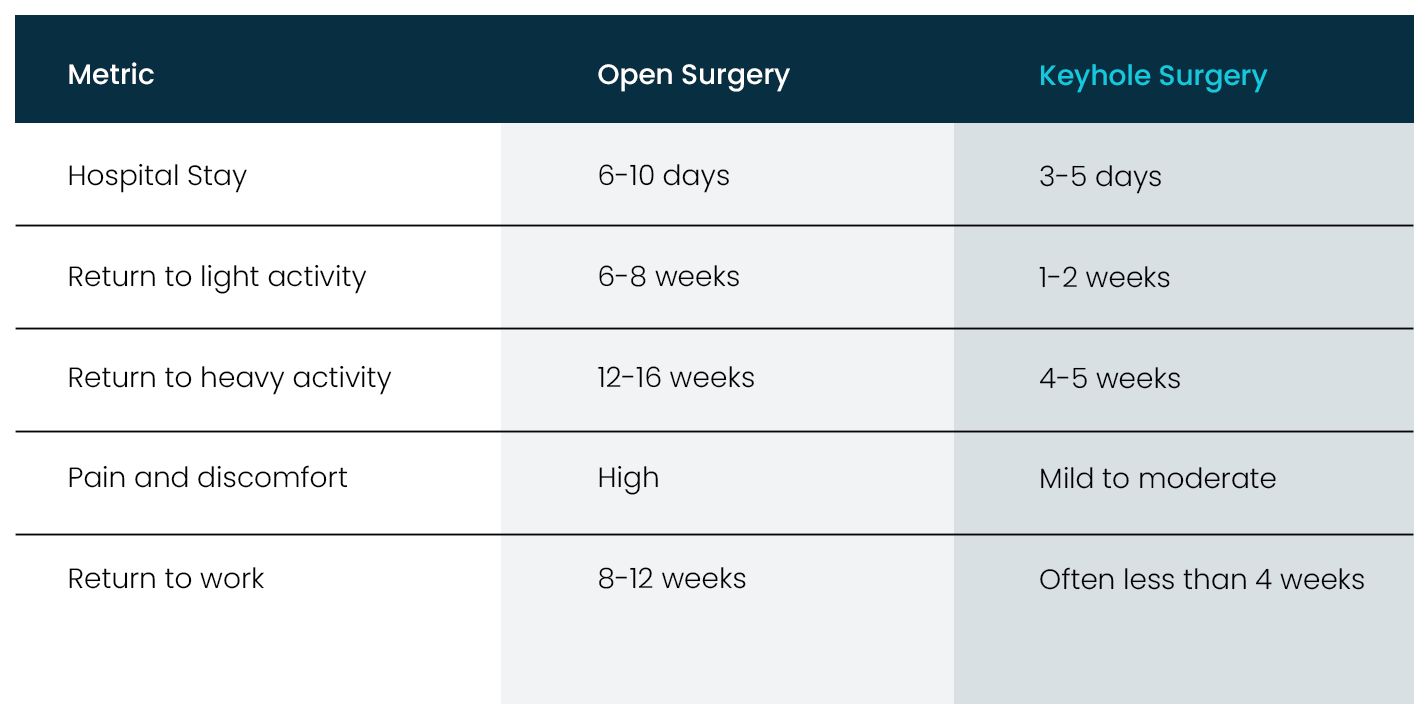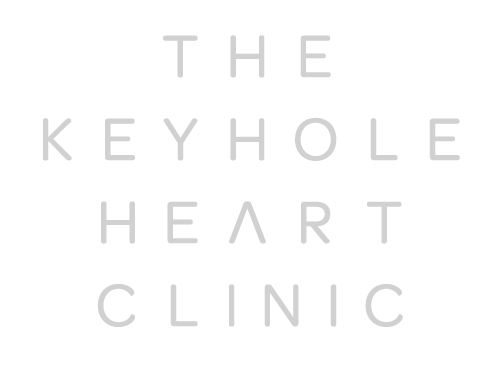What the Data Really Says About Keyhole Surgery Outcomes

Breaking Down the Real Stats
If you’ve been told you might need heart surgery, chances are the term “open-heart surgery” was the first thing you heard – and maybe the only thing. But over the last 20 years, a quieter but powerful shift has been happening in the world of cardiac care:
✅ Keyhole (minimally invasive) heart surgery.
This approach promises less pain, quicker recovery, and fewer complications – all achieved through small incisions that avoid breaking the breastbone. But does it really live up to the hype? Let’s dive into the data, what it means for your health, and why keyhole surgery might not just be easier – it might actually be better.
💡 What Exactly Is Keyhole Heart Surgery?
Keyhole surgery involves operating through small incisions (typically 3–6 cm), usually between the ribs, using specialised tools and a tiny camera. It’s commonly used to treat:
- Mitral valve disease
- Aortic valve disease
- Coronary artery disease
- Atrial fibrillation
- Aortic root enlargement (in selected cases)
At The Keyhole Heart Clinic, this is our specialty. We’ve seen firsthand how patients bounce back faster and with more confidence after minimally invasive procedures.
📊 What Does the Research Say?
We’ve looked at the best peer-reviewed studies and real-world results to answer the top questions people ask:
1. Is It as Safe as Traditional Open-Heart Surgery?
Yes – and in some cases, even safer. A major 2021 meta-analysis in the European Journal of Cardio-Thoracic Surgery found that minimally invasive mitral valve repair offered equal or better survival rates than open-heart surgery, with fewer complications like:
✅ Fewer blood transfusions
✅ Lower infection risk
✅ Reduced chances of atrial fibrillation
✅ Excellent long-term survival rates
These findings come from thousands of patients worldwide – not just one centre.
2. What’s Recovery Like?
In short: way faster.
Here’s a quick comparison:

Most importantly, patients say they feel back to normal sooner, both physically and emotionally.
3. Does It Hold Up Long-Term?
This is where many people get concerned – understandably. Surgery needs to last, not just feel easier.
Fortunately, long-term results are excellent:
- Durable valve repairs and replacements
- Strong graft longevity (in bypass procedures)
- Lower need for repeat surgeries – when done by skilled surgeons
In fact, mitral valve repair via keyhole techniques boasts a 95%+ success rate at 10 years in top centres.
4. Are There Unique Risks?
Every surgery has risks. Keyhole heart surgery might not be suitable for:
- Complex, multi-valve conditions
- Redo surgeries in some cases
- Emergency surgeries needing rapid action
That said, experienced surgeons can now perform even complex procedures – like valve replacements, AF ablation, or hybrid bypass + stenting – through keyhole approaches with excellent outcomes.
👉 Always ask: How experienced is my surgeon with keyhole procedures?
At our clinic, Mr. Inder Birdi has completed nearly 1,500 keyhole heart surgeries over 21 years – making him one of the UK’s most experienced.
🔍 Still Unsure? Here’s What Real Patients Say:
Data is important – but so is real-life experience. In surveys from leading centres:
- 98% would choose keyhole again
- 93% returned to daily activity quicker than expected
- Patients consistently reported less pain and better cosmetic results
The takeaway? Keyhole surgery isn’t just safe and effective – it’s more patient-friendly.
🤔 So Why Isn’t It Offered More Often?
Honestly, this is one of the biggest frustrations.
Many patients are never told about minimally invasive options, even when they qualify. Why?
- Not all surgeons are trained in it
- Some hospitals don’t offer it
- GPs and cardiologists may not know it’s available locally
- Standard referral systems favour traditional surgery
But just because you haven’t heard of it, doesn’t mean you’re not eligible. That’s why it’s important to ask: “Am I a candidate for minimally invasive heart surgery?”
✅ Key Takeaways — What the Facts Tell Us
🔹 As safe – or safer – than open-heart surgery
🔹 Faster recovery, less pain, better quality of life
🔹 Strong long-term outcomes in expert hands
🔹 Many patients qualify – but don’t get told
🔹 It’s not experimental – it’s proven, and practiced worldwide
❤️ Final Thought
When it comes to your heart, you deserve to know all your options.
If you’ve been diagnosed with valve disease, coronary artery disease, or aortic issues, ask whether a keyhole approach could be right for you.
You might be surprised at what’s possible – through just a few small incisions.

